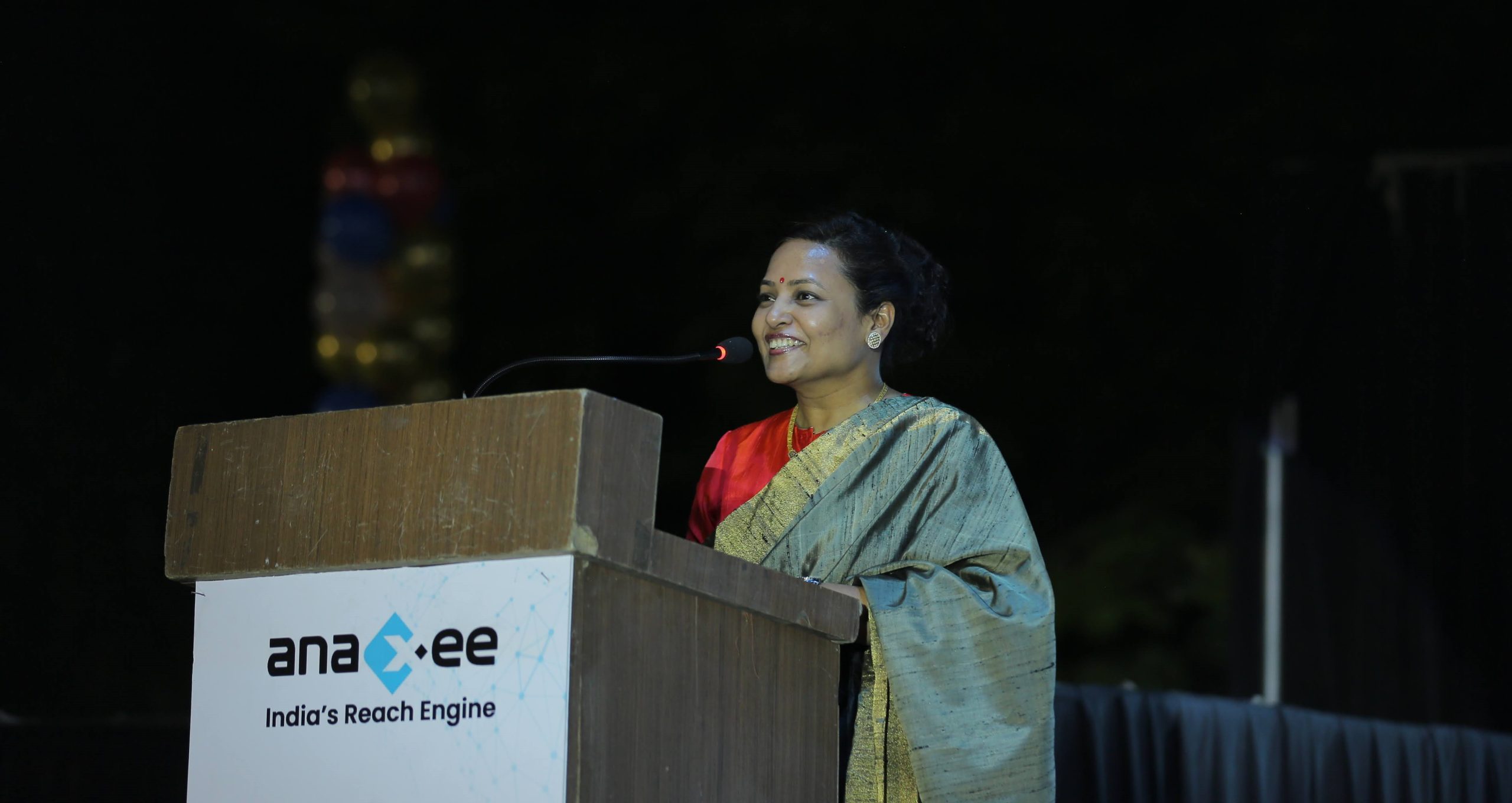BLOG

Winner of a city startup contest is harnessing the power of rural, semi-urban youth
Winner of a city startup contest is harnessing the power of rural, semi-urban youth
Anaxee’s business model involved “digital runners” or the local youth who act as a last-mile network.
When TiE Global Summit 2022, one of the world’s largest gatherings of startup leaders, investors and business experts, takes place in Hyderabad in December, Arti Agarwal will be talking about harnessing thousands of rural youth to take e-commerce and social initiatives into the deep pockets of India. Co-founder of an Indore-based startup, called Anaxee Digital Runners, with Govind Agrawal, Arti is the winner of this year’s Pune Chapter of the TiE Women’s Global Contest.
India has a high youth unemployment rate, a crisis worsened by the coronavirus pandemic. Anaxee’s business model involved “digital runners” or the local youth who act as a last-mile network. “As a company, our business is to help other businesses scale in Tier II and Tier III geographies. We started in 2016, essentially as a KYC or a verification business. This was the time that major telecom and fintech companies had deployed thousands of people across the country to carry out digital onboarding. One hundred crore Indians had also been enrolled for Aadhaar that year. After these initiatives, the enrolment operators were jobless. These were trained resources who knew to use technology and take fingerprints, among others. Anaxee started as an on-demand KYC for fintech companies,” says Arti, whose background is in biometrics.
Over the years, it has become one of India’s largest last-mile runner networks. Till now, more than 40,000 runners have cumulatively worked for them and the startup has a presence in 26 states, including those in the Northeast. Anaxee raised its last funding in 2018, taking the total amount raised to Rs 2.50 crore. The company earned a revenue of Rs 19.4 crore and turned profitable in 2022. “Now, we will look to raising a pre-series round of $ eight million,” says Arti.
The Anaxee runners work in conducting market surveys, data collection, lead generation, verification and KYC, among others, for companies. “We are working in Tier II and Tier III cities in different geographies in India. We don’t do Tier I cities. Around Pune, for instance, our runners are present in various talukas working, mostly, in lead generation for tractors in that area,” says Arti.
The service has been used by a number of major brands, chiefly in the consumer and agritech sectors. The model suits companies that either don’t have the resources or don’t want to invest in rural geographies but want to make inroads in that market. A lot of brands, for instance, have showrooms in the major metros but not in places such as Nashik and Sangli despite a demand but not enough promise of volume.
“That is one of the reasons that we see a lot of commerce flow coming from smaller towns and cities. There are people with aspirations but products and services do not reach them. The solution would be to have an aggregator who is able to aggregate the demand and make these services available on demand. We thought that multiple brands can use our network for services and products. It becomes affordable for them because they don’t have to pay us the entire cost of the supply chain. When they use our services, we become successful and are able to upgrade” says Arti.
The runners are local youth who live in these towns and cities. A lot of them are students, who have passed Class 12 and many are graduates. They are tech and mobile-savvy and would have shifted to a bigger town in search of job opportunities. With more funding, Anaxee plans to develop its technology and spend on upgraded soft-skill development and other training for the runners.
Anaxee has built systems for training the runners, getting feedback and for quality checks. “We have a sustainable way of onboarding and training our runners. All the training and assessments happen online. Before runners work on a project, they have to undergo training. We do frequent Zoom sessions with runners online so that we know them better. We realise that the runners are self-motivated, we just need to ensure that the training is proper,” says Arti, adding that the company has a sizeable support team in the office to handle queries from the runners if they face issues on the field. “We have a quality check team that monitors work done on the field in real-time. Even if a runner happens to make a mistake, we quickly give them feedback and bring them on track” she says.
One of the biggest successes of the company was during the vaccination drive last year as the government tried to get people to take the shot against Covid-19. Anaxee ran a programme called Project Swaraksha, which was a vaccination awareness drive to help rural citizens get vaccinated. “We counselled almost 30 lakh rural citizens and successfully vaccinated around 18 lakh. It is possible that more people got vaccinated but we don’t have proof,” says Arti. “Project Suraksha was great as our runners were unemployed due to the lockdown and this was an opportunity for them to earn as much as Rs 50,000 per month” she adds.



